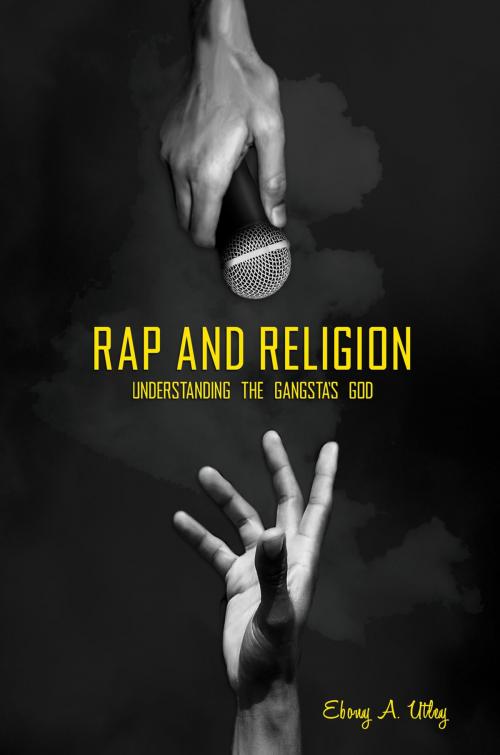Rap and Religion: Understanding the Gangsta's God
Nonfiction, Social & Cultural Studies, Social Science, Cultural Studies, Popular Culture, Entertainment, Music| Author: | Ebony A. Utley | ISBN: | 9780313376696 |
| Publisher: | ABC-CLIO | Publication: | June 11, 2012 |
| Imprint: | Language: | English |
| Author: | Ebony A. Utley |
| ISBN: | 9780313376696 |
| Publisher: | ABC-CLIO |
| Publication: | June 11, 2012 |
| Imprint: | |
| Language: | English |
Why is the battle between good and evil a recurring theme in rap lyrics? What role does the devil play in hip hop? What exactly does it mean when rappers wear a diamond-encrusted "Jesus" around their necks? Why do rappers acknowledge God during award shows and frequently include prayers in their albums? Rap and Religion: Understanding the Gangsta's God tackles a sensitive and controversial topic: the juxtaposition—and seeming hypocrisy—of references to God within hip hop culture and rap music.
This book provides a focused examination of the intersection of God and religion with hip hop and rap music. Author Ebony A. Utley, PhD, references selected rap lyrics and videos that span three decades of mainstream hip hop culture in America, representing the East Coast, the West Coast, and the South in order to account for how and why rappers talk about God. Utley also describes the complex urban environments that birthed rap music and sources interviews, award acceptance speeches, magazine and website content, and liner notes to further explain how God became entrenched in hip hop.
Why is the battle between good and evil a recurring theme in rap lyrics? What role does the devil play in hip hop? What exactly does it mean when rappers wear a diamond-encrusted "Jesus" around their necks? Why do rappers acknowledge God during award shows and frequently include prayers in their albums? Rap and Religion: Understanding the Gangsta's God tackles a sensitive and controversial topic: the juxtaposition—and seeming hypocrisy—of references to God within hip hop culture and rap music.
This book provides a focused examination of the intersection of God and religion with hip hop and rap music. Author Ebony A. Utley, PhD, references selected rap lyrics and videos that span three decades of mainstream hip hop culture in America, representing the East Coast, the West Coast, and the South in order to account for how and why rappers talk about God. Utley also describes the complex urban environments that birthed rap music and sources interviews, award acceptance speeches, magazine and website content, and liner notes to further explain how God became entrenched in hip hop.






![Cover of the book Surveillance in America: An Encyclopedia of History, Politics, and the Law [2 volumes] by Ebony A. Utley](https://www.kuoky.com/images/2016/february/300x300/9781440840555-E06M_300x.jpg)

![Cover of the book America Goes Green: An Encyclopedia of Eco-Friendly Culture in the United States [3 volumes] by Ebony A. Utley](https://www.kuoky.com/images/2012/november/300x300/9781598846584-6h8b_300x.jpg)






